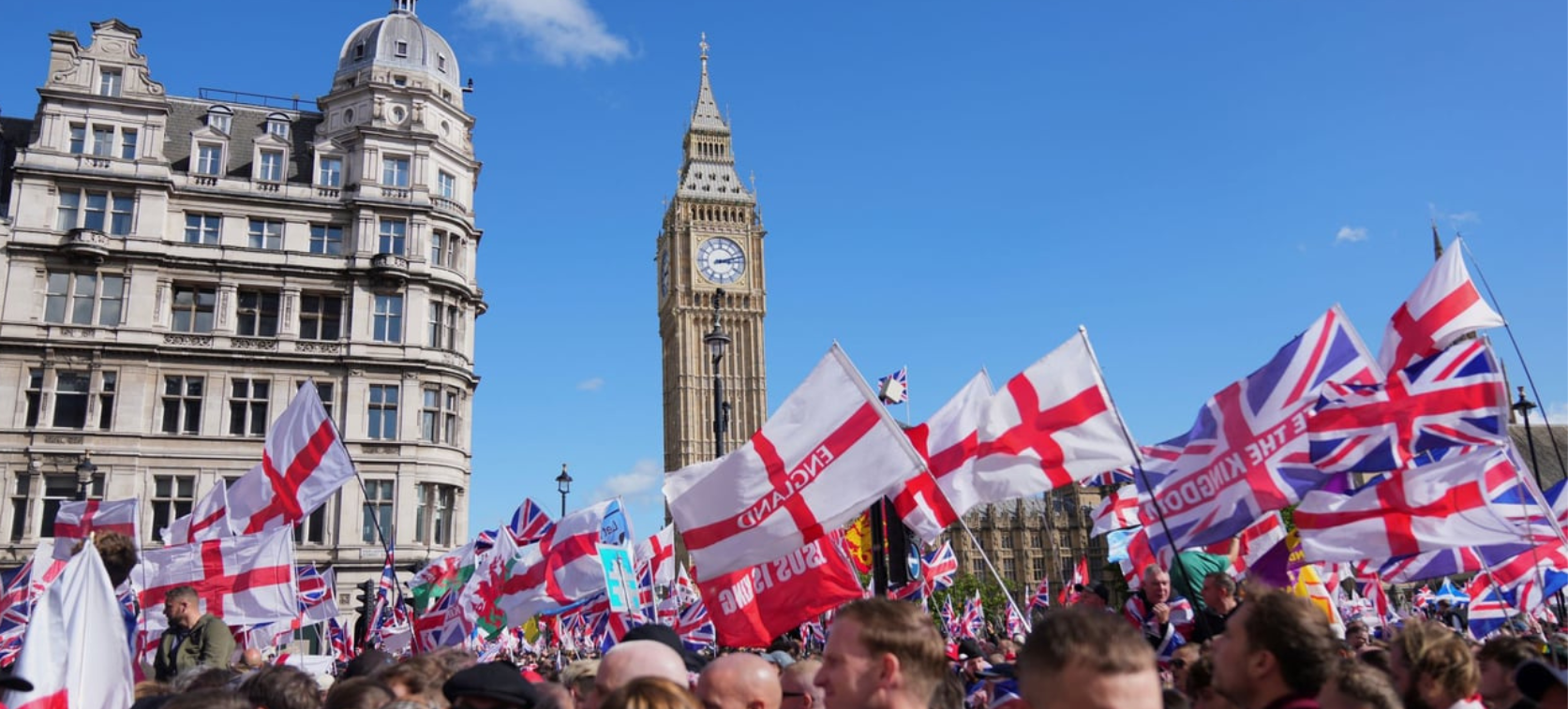When my father arrived in Britain in the late 1970s, he was ambushed by a National Front mob. Our family home was attacked repeatedly: windows smashed, “NF” daubed across the walls. For many immigrant families, racism was not a rare shock but a daily backdrop. That history matters when examining today’s politics, because what we are seeing now is less a new threat than the recycling of an old one.
The latest “Save the Kingdom” rally in London was designed to provoke. With chants, banners, and the tearing of Islamic symbols, the event was staged for cameras and headlines rather than genuine debate. Its intention was clear: bait communities into either retreat or confrontation, both of which serve the narrative of division. For those targeted, the danger lies in reacting on cue, either by running from the moment or lashing out in anger — both responses that leave the community weakened.
Yet within the rally were also voices of discontent that cannot simply be dismissed. Many attendees expressed frustration with the government, not only on immigration but across a wider spectrum — housing, healthcare, wages, and public trust. This is important to acknowledge: disaffection is real, and it reaches beyond the far right. But when legitimate grievances are hijacked by groups with narrower agendas, dissent is redirected into darker, more dangerous channels. The tragedy is that while the government witnesses such rallies, it too often fails to reflect on the deeper mess the political system has created, preferring to exploit divisions rather than resolve them.
The challenge, then, is not to fall into the trap of theatre. What is required is a stronger, ideological response — one that moves beyond emotion and demonstrates that the battle is not in the streets but in the realm of ideas. Islam’s early history offers examples worth recalling. When the Prophet Muhammad ﷺ confronted a society built on wealth, lineage, and intimidation, he elevated a former slave, Bilal ibn Rabah (RA), to make the call to prayer from the Ka‘bah — a direct rebuke to racial supremacy. When the migrants of Makkah moved to Madinah, they were not pushed aside but integrated as equal citizens, a civic model that many modern governments still struggle to match.
Political theatre thrives on spectacle. It seeks to reduce complex questions of identity and belonging into gestures that inflame. To respond effectively is not to mirror that drama, but to present substance — to build institutions, to train voices, and to insist that solutions exist beyond the binary of fear and reaction.
While political actors and sections of the British establishment may deploy patriotism as a diversion — whipping up resentments and getting people at the bottom of the social ladder to dance to a simpler, scapegoating tune — that tactic carries real risk. Manufacturing division for short-term gain fractures society; a polarised country teetering on the edge of unrest is not only damaging for communities, it will also come back to haunt the elite who set it in motion. Britain’s reputation, cohesion and stability suffer when politicians trade in spectacle rather than governance.
For Muslim communities in particular, the options are limited. Emigration may appear an escape, but it is neither financially realistic for most nor viable for fourth-generation Muslims whose roots are firmly here. The reality is that there is no running from Britain’s politics. The community must recognise that it is already in the arena of ideological contest. No amount of apologies, efforts at integration, or proof of being “model citizens” will remove racism from Britain’s streets. The only effective response is to meet political theatre with intellectual clarity, moral conviction, and a vision that refuses to be baited into failure.
These lessons underline that Islam’s answers to racism and migration have always been rooted in dignity, justice, and responsibility — not in panic or retaliation. The community today must recognise that the real fight is intellectual and moral, not performative.
The rally may have dominated headlines for a day. The real test will be whether communities respond with clarity, vision and confidence — or whether they continue to play to a script written by others.
Need Help?
-
[email protected]
-
Follow us on Instagram
-
Follow us on TikTok
